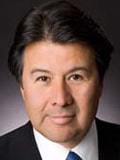
Pete Campos
The Legislature is meeting in special session to consider redistricting legislation and a slew of other issues that the governor has placed on the agenda. The difficulty is that communication between the governor and the Legislature has been very limited leading up to this session, foreshadowing a contentious few weeks.
Now more than ever, New Mexico needs the governor and the Legislature to communicate, cooperate and collaborate.
Redistricting is an important, once-a-decade process that ensures that every New Mexican is equally represented in Santa Fe and Washington, D.C. It is the basis of our system of government and should not be treated lightly or used for partisan advantage. Done correctly, redistricting necessarily means that some areas of the state – those where population growth has not kept pace with the state as a whole – will lose representation while other areas – those where the population has grown the fastest – will gain representation.
This year, that truism generally means that Rio Rancho and the west side of Albuquerque will gain political representation at the expense of downtown Albuquerque and eastern New Mexico.
The redrawing of political districts to accommodate population shifts must also be done with an eye toward ensuring that the voting strength of ethnic and racial minorities is not diminished, that various communities of interest are preserved and that other technical requirements are met. Political gain is, or should be, well down on the list of redistricting criteria.
The Legislature is well positioned to approve redistricting plans that meet these criteria, having spent the summer taking public testimony from New Mexicans about what they would like to see in new political districts. We are hopeful that the lines of communication between the governor and the Legislature will open soon on this issue to avoid the costly debacle that followed the last redistricting effort. In 2001, the governor’s vetoes of redistricting legislation – without an offer of any viable alternatives – cost taxpayers $3.5 million in legal fees and costs when the issue had to be resolved by the courts.
Made more contentious by other issues
A special legislative session, which is estimated to cost up to $50,000 a day, devoted solely to redistricting would be contentious enough, but this session has been made more contentious by the addition of other issues. Some of these – such as consideration of impeaching the public regulation commissioner from District 3 – are important and worthy of consideration during the special session, no matter how difficult.
Others, such as legislation to grant the governor authority to ban fireworks or to merge the Cultural Affairs Department with the Tourism Department, can easily wait until the Legislature meets in regular session in January.
Impeaching a state official is the gravest action the House of Representatives can take. Officials can be impeached for crimes, misdemeanors or malfeasance in office, and an official who has been impeached by the House of Representatives is prohibited under the state constitution from exercising any powers and duties of office until and unless acquitted by the Senate. Once impeached, the official is tried by the Senate and, if convicted, would be removed from office. Because the Senate would try the case, it would be improper for senators to comment on possible impeachment proceedings.
A vote by a majority of the members elected to the house of representatives – 36 members – is required to impeach an official, and a vote by two-thirds of those elected to the Senate – 28 members – is required to convict an impeached official.
Some issues should wait until January
Special sessions are designed to be limited to those matters that require immediate attention. Redistricting is one of those, as the political districts must be settled before January. Emergency appropriations to assist New Mexicans who are struggling in today’s weak economy and capital outlay legislation to help jump-start the economy are others. Even impeachment, which is a grave and potentially time-consuming issue, also warrants our attention during a special (and possibly extraordinary) session.
But the other issues that the governor has placed on her proclamation would be more appropriately considered in January during the regular session.
All the issues the governor places on her proclamation will be carefully evaluated, however, and a thoughtful, apolitical approach will be taken to determine which are addressed during the special session and which are addressed during the regular session in January. The governor, of course, sets a good part of the agenda for the 30-day, regular session in 2012.
The Legislature is prepared to deal with all the issues that the governor has placed on this special session’s agenda, even if the most appropriate way to deal with some of them is to consider them in January instead.
Campos is a Democratic state senator from Las Vegas and president of Luna Community College.